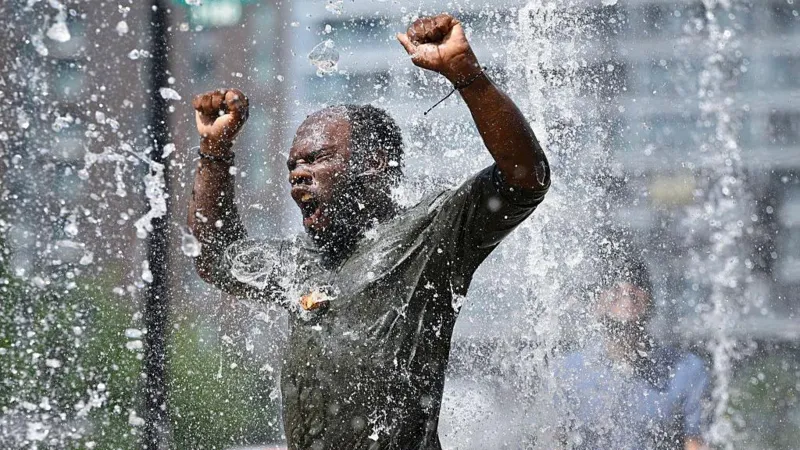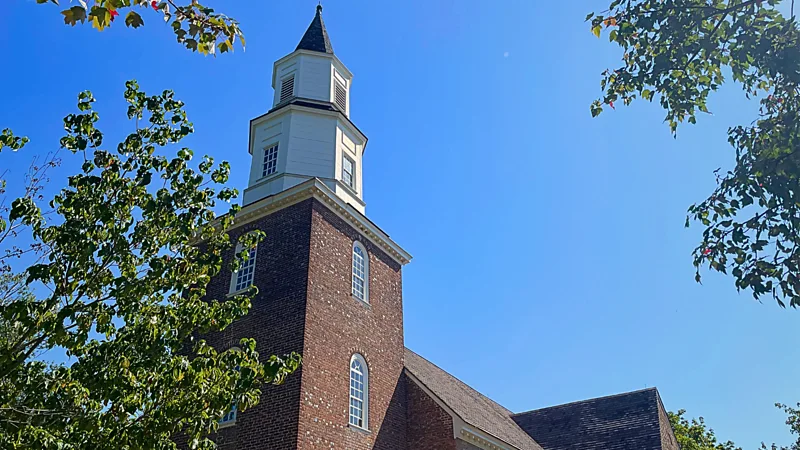Battery acid attack victim reveals how donated placenta treatment saved his eye
After he was squirted in the eye with battery acid, Paul Laskey thought he would lose his eye entirely, until a donated placenta helped save some of his sight.

Paul, 43, was attacked after he confronted 21-year-old Robbie Scott, who had mugged his son in Newcastle just minutes earlier.
"[My son] phoned us, hysterical, saying he had been robbed," the father-of-three told Sky News. Scott had "pulled a knife on him and ripped a gold chain off his neck".
When Paul went to confront Scott, he squirted him with battery acid from a drinks bottle.
"I knew instantly. I couldn't see anything, I couldn't breathe, it was in my nose and mouth. I thought I was fighting for my life."
Paul was rushed to hospital where he was told the burn had caused limbal stem cell failure and severe neurotrophic keratopathy in one of his eyes - this meant the cells within the eye couldn't properly repair or regenerate the surface of the cornea and the nerves within the eye were failing to function properly.
The inner and outer layers of the cornea had effectively "melted".
While one eye was unharmed, there was a fear he may lose his left eye entirely. What followed over the next eight months was extensive surgery, including two cornea transplants.
But then came hope in the form of a donated placenta.
'This saved my eye'
Paul was given three amnion grafts, where tissue is taken from the inner lining of a donated placenta and made into small patches. These grafts stabilised his eye, avoiding further melting and saving the limited vision he did have.
"I don't think it initially registered what it was, but I think it's just unbelievable," he said.
"It's like a skin over the top of my eye, giving it a chance to heal."
Paul spent six months off work, struggling to leave the house as he couldn't cope with the light sensitivity.
Before he had the procedure, Paul said he was "really low".
"I didn't think it was going to save me," he said. "But now it feels like a light at the end of the tunnel."
Paul is now back at work, and back coaching his son's football team. He still struggles with his depth perception - he can only see shadows from his left eye.
"But this saved my eye and hopefully future procedures will give me some sort of sight."
Scott was sentenced to ten years in prison for the attack on Paul - he pleaded guilty but gave no account of what happened on that day.
Even though it meant losing his sight, Paul said he has no regrets about confronting his son's attacker. He said it could have been his 16-year-old son who was burned instead of him.
"I would do it again - I would rather it be me than [my son]," Paul said. "He was just 16 at the time and it would have been absolutely devastating if this had happened to him."
'Very special surgery'
In 2024 NHS Blood and Transplant provided 882 amniotic membrane grafts for transplantation, all of which were provided for eye surgery. Paul's eye injury was one of the most severe his consultant has treated.
Each donated placenta can be used to make up to one hundred amnion grafts, treating patients for anything from eye injuries to burns and diseases.
Claire Price, national retrieval manager at NHS Blood and Transplant's Tissue and Eye Services, said this type of surgery is "very special".
"The placenta is a vital organ whilst growing a child but immediately after birth, is usually discarded," she said. "Donating is easy and does not affect the baby."
She thanked all the mothers who donate their placentas.
"While we can currently collect all the placentas we need, Paul's story is a reminder of just how important donation of all types is, including blood, plasma, organ and stem cells," she added.
Professor Francisco Figueiredo, consultant ophthalmologist at Newcastle Eye Centre, who treated Paul for his injuries, said chemical eye burns are a "true emergency".
"They can cause significant sight loss that will substantially impact the quality of the patient's life and rapid treatment is crucial," he said.
"It is safe to say that these grafts have helped to save the vision Paul still has - and allowed us to move towards further treatment to restore his lost sight."
-SKY NEWS







